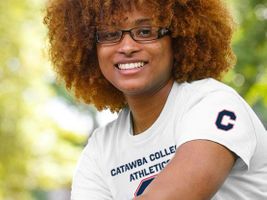Alumni Story
Jon Rhodes '08 and Aileen Thomson '08
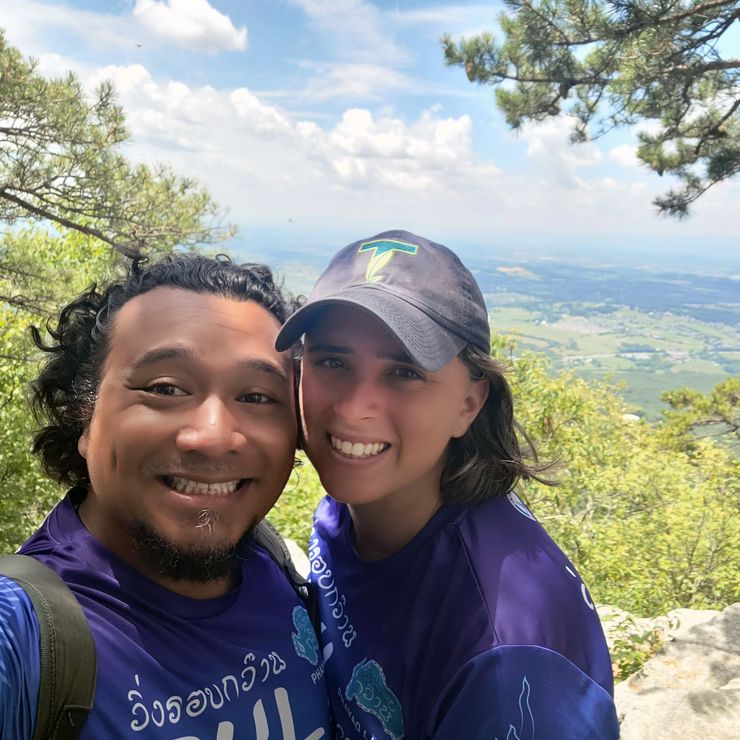
Jon Rhodes '08 and Aileen Thomson '08
Empowering Future Change Makers
Graduation Year: 2008
Majors: Religion and Philosophy (Jon); Political Science and Spanish (Aileen)
Hometowns: Virginia Beach, VA (Jon); Burlington, VT (Aileen)
Be adventurous. Take random classes you don’t need, try anything that seems like it might be interesting.”
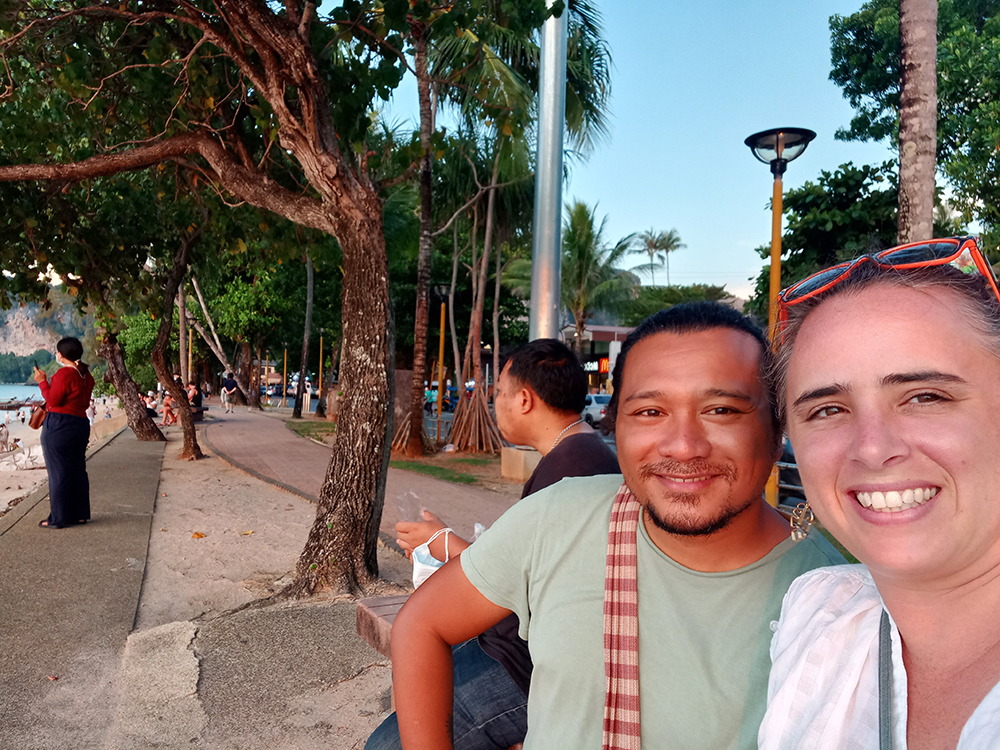
“I ended up at Catawba kind of randomly,” Aileen smiles. “I’m from Vermont and I wanted to go somewhere different, to get to know different cultural and social issues, but I didn’t want to go too far south. I looked at a lot of different liberal arts colleges in North Carolina. I visited Catawba and really liked the atmosphere and people I met.”
Jon originally had his sights set on going to college in Hawaii. “My mother said I would end up failing college if I did that. She would probably have been right,” he admits with a grin. Jon refocused his college search. Both of his parents went to college in North Carolina. “I was familiar with that area. I knew I didn’t want to go to a big school. I looked at small liberal arts schools and I was fascinated by the new Center for the Environment at Catawba. It was a real draw for me.” Surprisingly, once at Catawba, he tried on various majors, but never took a class in environmental science.
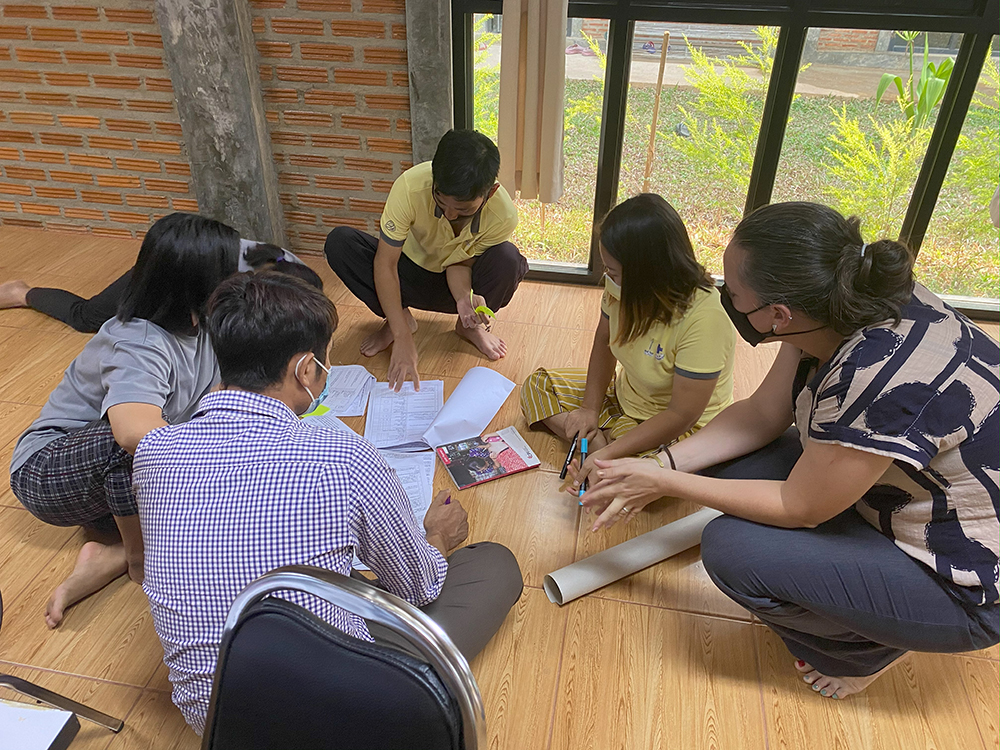
Aileen majored in political science and Spanish, Jon eventually chose religion and philosophy. After graduation, the pair went to South Korea to teach English, but it was not for them: “Teaching English there was very formal, students were under a lot of pressure to meet certain expectations, to take many classes and study many hours, in addition to studying many hours to learn English.”
Returning to the States, Aileen went to law school and Jon earned his master’s. During law school Aileen worked for an organization that did work on the Thai-Burma border on Burmese political issues. She got a post-graduate fellowship to go to Thailand. Jon came with her. “As an environmental scientist, you can really do that anywhere,” he explains. He initially focused on agriculture and working with local community members who had been displaced from Burma and were living in Thailand. Living at a farm, Jon taught environmental science and community development. “For the longest time, my parents thought I was a farmer,” he laughs.
The couple moved around the region early on, living in Burma, different parts of Thailand, and briefly in Nepal, but decided Thailand was where they wanted to work. They formed The Tea Leaf Center in 2018. “That was a culmination of years of experience where a lot of the work we were doing then was consultancy-based. We realized that a lot of the work could have been done better if local community members were the researchers, if it was not just foreigners coming in to do the work. That was part of the inspiration for The Tea Leaf Center, to develop the skills, ability, and capacity of the local researchers to do the work,” Jon explains. Inspiration for the name was also local. “In many parts of Southeast Asia, important conversations and revolutionary ideas are often shared around a cup of tea and at the tea table. We draw inspiration from those types of conversations and these young leaders. We chose ‘The Tea Leaf Center’ because it represents supporting and empowering future change makers,” Jon shares.
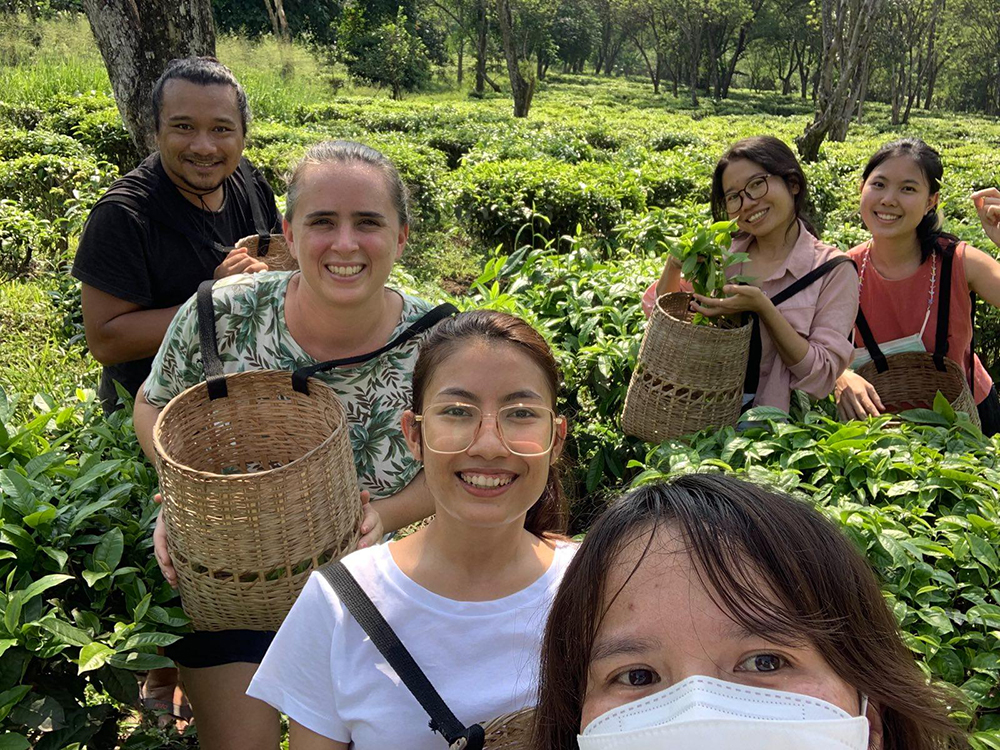
“Jon and I were working in different fields but found a lot of the same structural problems. Jon was doing environmental science and community development, I was doing human rights and transitional justice work with a lot of civil society work, first in programs, then moving into research. The way that we approach working overseas generally is much more about serving in a supportive capacity instead of leading,” Aileen elaborates. “That underpins both of our approaches in our past work as well. Now, with the Tea Leaf Center, we found that either of us in our own field might separately do a research project with an organization, but if I was the one leading, or writing the report, or doing the analysis, it’s my opinion and interpretation of the data, not that of the local community members.”
“The local organizations really know their issues and situations, but they don’t always know how to do their research in a systematic way that is then going to be seen as reliable by policymakers, donors and other organizations. We help them take their expertise to make the research more systematic and make it more influential. We understand what people are facing on the ground and what they’re trying to do, and we understand from the donor side what they need to hear and why, and we try to help bridge that,” Aileen explains.
“A lot of the people we work with are not accepted by their mainstream culture in their countries, they’re trying to do things in a different way, whether it’s ethnic or religious minorities, people with different political values from the mainstream, or alternative education systems trying to provide more critical thinking,” Aileen says, “It’s valuable to be able to support those kinds of systems.”
At the Tea Leaf Center, the couple divvy up the responsibilities. Jon is research director, working with local interns, and he manages the website and technology. He designs methodologies and seeks to develop new relationships and strengthen existing ones the Center has in the local community. Additionally, he’s working on his PhD. Aileen is executive director, handling administrative work, finances, and HR, doing planning, and looking for new projects. She also oversees and leads trainings. They both conduct research independently in their own areas.
Busy as they are, the couple prioritizes balance for their staff and for themselves, making time for fun. They’ve taken up running, traveling around the area with friends to run 10K races which often begin at 4:30 or 5:30 a.m. to avoid the hottest part of the day. Aileen enjoys hiking, and Jon, a foodie, is venturing into making hot sauces, which he sells at markets.
They still apply things they learned at Catawba. Jon found being able to take multiple classes in different fields was influential in his ability to think critically. Being comfortable forging friendships with a variety of people at Catawba readily translates to making friends abroad for the pair.
“Be adventurous,” is advice this couple offers to Catawba students. “Take random classes you don’t need, try anything that seems like it might be interesting,” Aileen suggests. “I still use pieces of information I learned in my agroeconomics, personal finance, and history classes.” Jon encourages students to get to join clubs and societies - he was an active member of DAS – and to volunteer in the community beyond campus.
Jon and Aileen are clearly good at taking their own advice.
